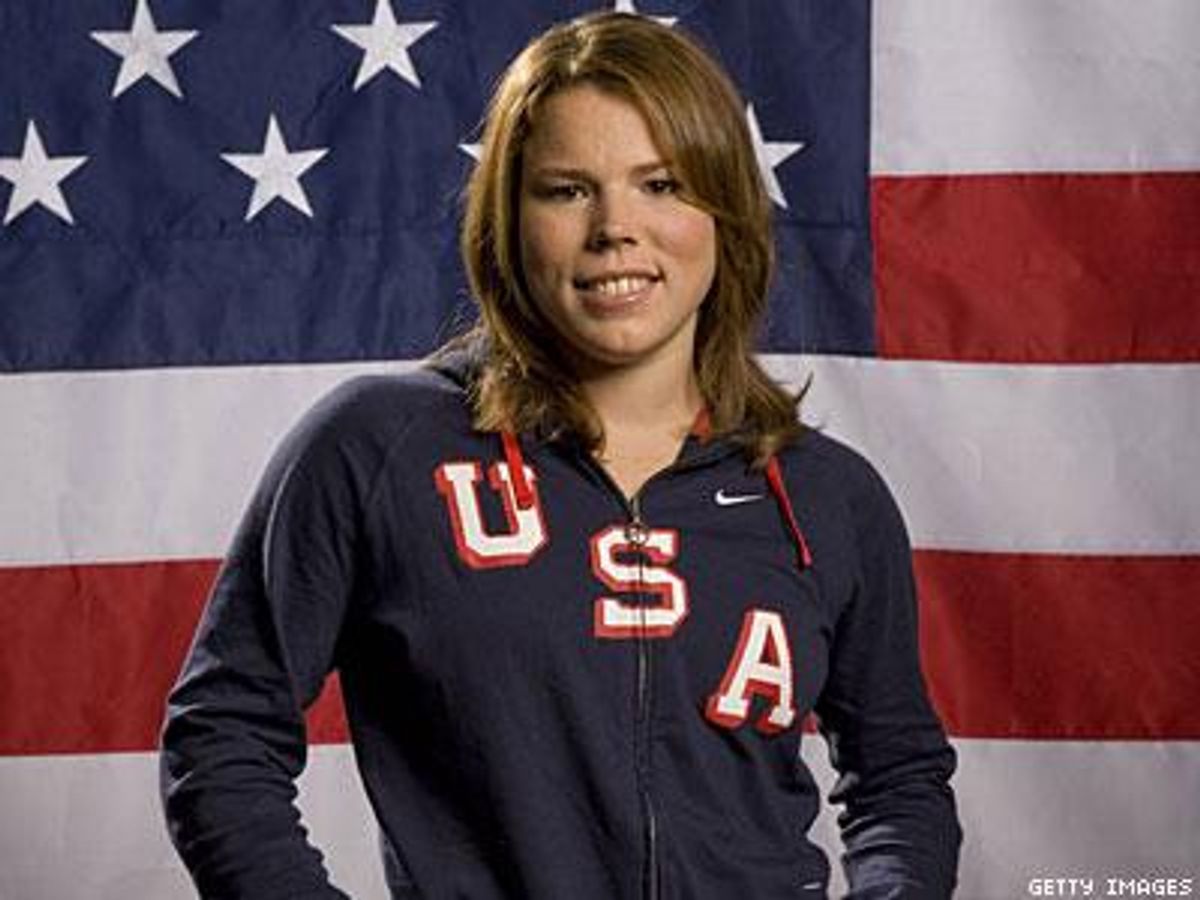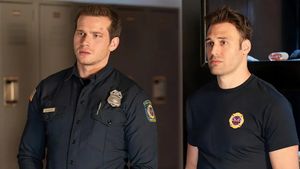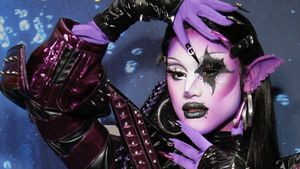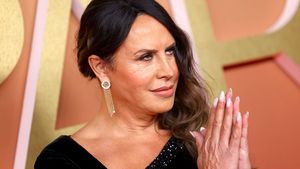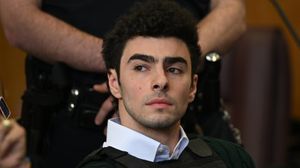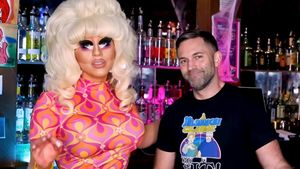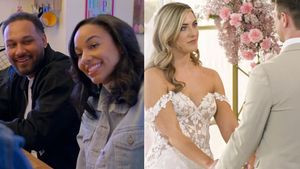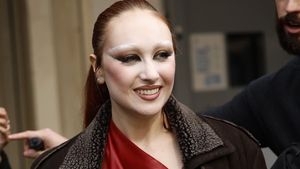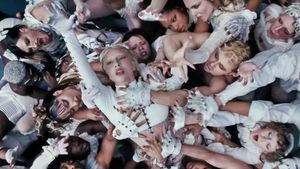Caitlin Cahow is on a bumpy bus ride with her former team, the rowdy Boston Blades, on a Friday night. The Canadian Women's Hockey League team was leaving Beantown for a game in Toronto against the Furies.
"Wait, what's this for again?" she asks over the phone.
"The Advocate," I reply.
"Great, OK!" she says. It's hard for her to keep track these days. Cahow has been quickly thrust into the national spotlight once she, Billie Jean King, and Brian Boitano were named to the American delegation for the opening and closing ceremonies at the Sochi Winter Olympics in Russia. The White House has not said as much, but with at least three openly gay athletes headed to Sochi instead of anyone from the West Wing, the move looks a lot like a big middle finger to Russian President Vladimir Putin and his country's draconian, seven-month-old, antigay law.
Before announcing the U.S. delegation, President Obama said he wanted LGBT athletes to come out and win some gold medals in the face of the law, which fines and jails people for purporting so-called propaganda about the existence and equality of LGBT people. While the United States has yet to name an openly gay athlete competing in the Sochi Games, the White House announced it would send three out veteran olympians instead.

Goofing around with friends on the ice.
Cahow may not be well known to many people outside of USA Hockey fans, after her performance for the women's team in both the 2006 games in Torino, and the 2010 games in Vancouver. Still, passion for the games emanates from her, even through a cross-country phone call from a bus full of hockey players.
The 28-year-old Boston College law student says the Olympics are so special because most athletes who head to the games aren't multimillionaire NBA stars. They're everyday people who do their own laundry, who get their own groceries. In the same vein, she was in the midst of studying for her constitutional law final exam (which was chiefly about this summer's landmark marriage equality case, U.S. v. Windsor), when she got the call asking her to be an Olympic delegate.
"It was this crazy [moment], that you wouldn't believe it if you saw it in a movie, but it was my life," she says, laughing.

Trophy girl.
Cahow says she truly believes that the spirit of the Olympic games can change perceptions, and bring the world together. It's especially crucial in a country like Russia, where LGBT people are subject to laws that could land them in jail for speaking out for their rights, or even holding hands with their significant other. And then there's the escalating vigilante violence against gay Russians that goes largely unchecked by authorities. Still, Cahow says if the games weren't in Sochi this year, there sadly would not be as much of a spotlight on the country's homophobic climate.
"I look at the discourse that's happening now, revolving around the Olympics being in Russia, and the conversation around LGBT rights...would not be happening if the Olympics had not been in Sochi," she says. "If it had gone to Salzburg, which was one of the three finalists for the Olympic games, we wouldn't be talking about these gross human rights violations against the LGBT community. It's drawing in voices from around the world who might not normally [be] engaged in this sort of discourse with each other, so I'm glad the world is opening up its mind and hearts to this discussion."
Cahow says she hopes that the conversation over Russia's treatment of its gay citizens will continue even after all the medals have been won and the athletes head home. The Olympics, after all, were reintroduced to bring the world together in a sign of peaceful competition.
"It's that optimism, that hope, and that inspiration that I want the world to look at Sochi," she says. "If it means they hold up the mirror to their own faces and say, 'my country can be better,' and 'this world can be better,' then we're doing the right thing."

At the Golden Globes
Nonetheless, not all athletes are willing to speak out against Russia's law, and only a handful of Olympians are going to Sochi as openly LGBT. None of them are American, but Cahow suspects there are multiple athletes headed for the games who are not straight.
"[T]hey won't speak openly, maybe because they're worried about perceptions [of them] in the media, or perceptions in the public eye," she says. "And that's the next hurdle for us, because it's so vital that we can feel like we are who we are. So the next hurdle is making it OK to say that publicly, and we're not there yet."
Cahow herself was not out to the world, outside of her friends, family, and teammates, until after she had to retire due to serious injuries. But she came out publicly a few months ago, vowing to give a voice to others who felt like they could not fully express themselves.
"I'm hoping that by being out about who I am, and supporting other LGBT athletes and allies, that I'm encouraging others to be open and honest, and to share the gift of being open and honest with the world," Cahow says.
Some have called for a boycott altogether, just as the United States and dozens of other countries did with the 1980 games in Moscow as a reaction to Russia's invasion of Afghanistan. The boycott derailed the dreams of many would-be Olympians, deterring them from ever competing at the biggest athletic competition in the world. Cahow says a boycott would be unfair to athletes who train endlessly for an Olympic moment.

With a teammate.
"I'm one of those people who train my entire life, and tirelessly work every day to represent my country on the world stage," she says. "I've never been prouder than when I got to wear my nation's colors in the Olympic games. It's the pinnacle of any athlete's career. I want all athletes to have that experience, and validation, and opportunity that I had, because was a life-changing experience for me. I'm a better person for having been an olympian."
As the Olympic hockey player-turned-law student boards a plane this week to represent the United States yet again, she says she's not worried about being dragged away to the Kremlin, or put in a cold, Russian jail cell for being out.
"I think generally I'm an optimistic person and I have faith in people that the spirit will extend to everyone," she says, "and that there will be peace, and inspiration, and excitement, and joy for two great weeks, and I hope that goes over as far into the future as possible."
